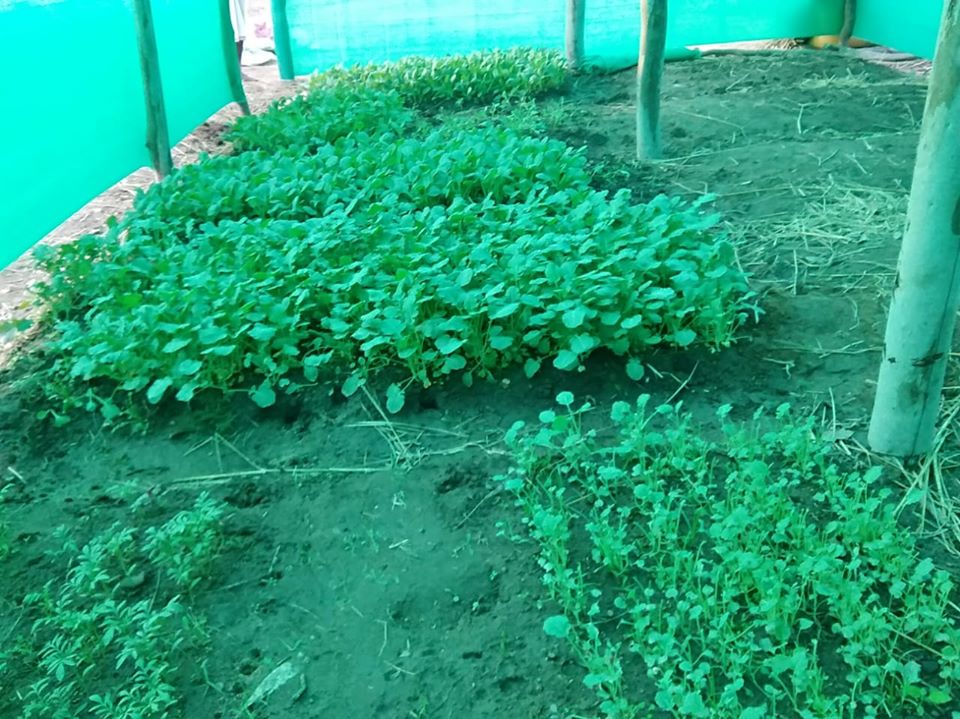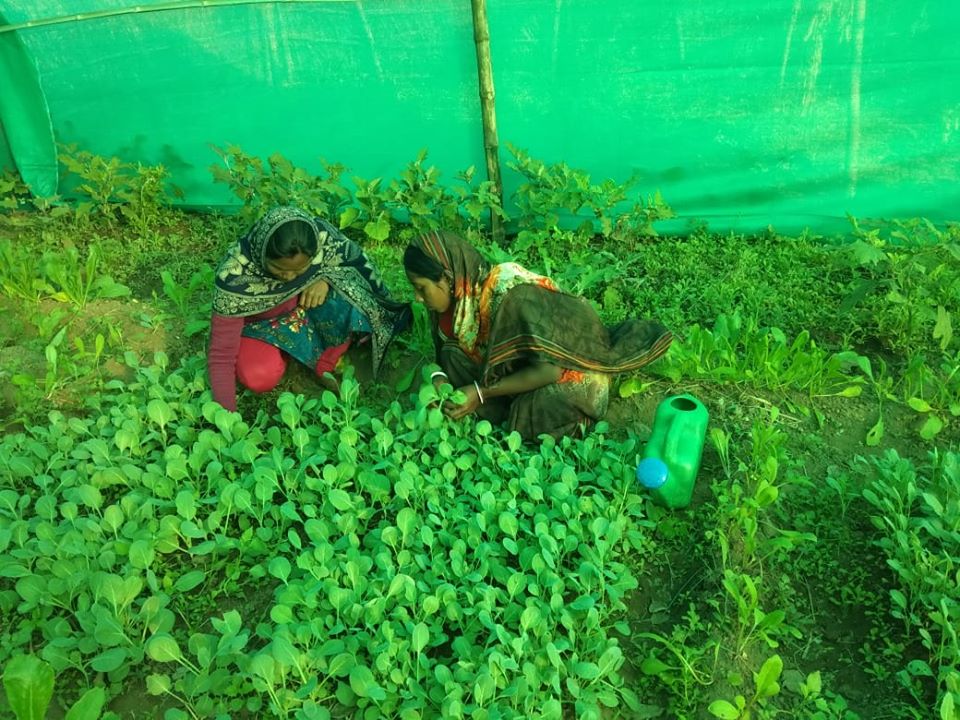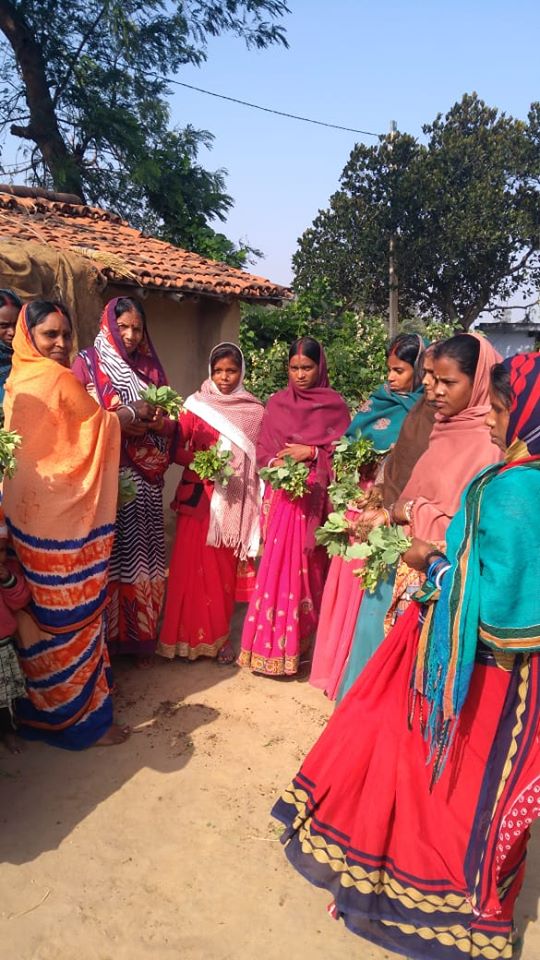At a time when the country is facing an unprecedented challenge in the form of coronavirus pandemic, ensuring a diversified and nutritious intake of food by vulnerable families have become even more important for Welthungerhilfe and its partners. Dietary diversification balances the diet by enhancing supply of essential micro-nutrients leading to improved health, enhanced thinking ability and increased efficiency. Increased and a varied combination of vegetables production could improve food and nutrition security as well as offer income opportunities to all small farmers, including women.
In the past, homestead nutrition gardens have proved to be a vital source for diversified intake of nutritious food by socially and economically backward households in rural India. And in the present context produce from such nutrition gardens have become a savior for many families. However, not many families have or can afford to grow and maintain such gardens. They are dependent for a series of support ranging from saplings that are to be purchased from the markets, technical know-how to initial investments. Additionally, saplings available in the market are mostly grown with chemical inputs which affect negatively on their health and growth.
Our partner, Abhivyakti Foundation (AVF) in Jharkhand has stepped up and are supporting small and marginal farmers with cluster nurseries. To avoid chemically laden saplings from the markets, AVF introduced the concept of cluster nursery to families with malnourished children in Giridih district and are ensuring availability of healthy saplings. Community nursery or a cluster nursery is the source for healthy plant sapling materials, where farmers can easily access and get healthy, disease free vegetables sapling for their nutrition garden.

Baldev Yadav, a lead farmer in the area with support from AVF developed a 35 ft X 15 ft vegetables nursery on his own land and nurtured different types of vegetables sapling in his nursery. Some of the saplings includes broccoli, cabbage, cauliflower, tomato and brinjal. Also, no chemicals are used in these nurseries. In the initial stages, the lead farmer is given basic structure support such as green shade net, nursery tray, water cane, tulu pump and sprayer. This model protects the vegetables seedling materials from heavy rain, excessive temperature, heat wave and dryness. It also provides a favorable condition for young seedling as a result healthier root system and better production.

In the recent past, AVF has promoted 11 cluster nurseries across nine Panchayats at Bengabad and Gandey block in Giridih district, Jharkhand. The farming community which largely depends on the market to buy vegetables sapling for cultivation are now able to source it from these local nurseries. A total of 35,000 healthy vegetables sapling materials were distributed free of cost among the families with malnourished children from these 11 cluster nurseries across project locations. In five villages of Mahuar Panchayat, nearly 5000 vegetables sapling materials were distributed to identified families to develop their own nutrition garden.
About 700 families with malnourished children are benefited from these cluster nurseries in Giridih district of Jharkhand. These families got access to diversified crops in their nutrition garden with supply of healthy sapling material. Even during the difficult time of coronavirus pandemic these families and their children were able to ensure a diversified and nutritious diet.

With inputs from Santu Adhikari (AVF).



